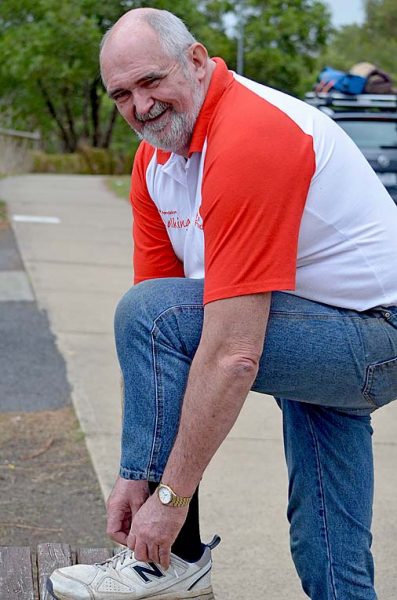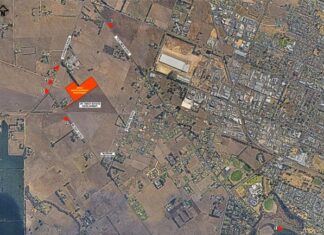
A MOUNT Gambier Heart Foundation volunteer has called on residents to put on their sports shoes and start walking to improve their health.
Peter Heness – who runs free walking groups in Mount Gambier – has urged people to take up the challenge issued by the Heart Foundation and Prime Minister Malcolm Turnbull.
People have been urged to walk one million steps over 20 weeks, which equates to around 30 minutes per day.
Mr Heness said people can download the Heart Foundation Walking App and tick the sign-up box to be rewarded with an App badge and prize draw entries.
“It is never too later to start walking – it is good for your health,” said Mr Heness while walking around the iconic Blue Lake.
His walking group – the “Lake City Shift Walkers” – is run through the Heart Foundation.
“I have been doing it for five years and we have 14 people who turn up on a regular basis on a Wednesday and Friday at 5.30pm sharp at the Blue Lake cactus garden,” the keen walker said.
“Everybody is welcome to come along – people from all walks of life come.”
He said there were two routes to cater for both good walkers and those who only wanted to go a short distance.
“The walks take half an hour, which is what is required daily.”
Mr Heness said he began walking some years ago after he became tired and breathless during moderate exercise.
“I was about 49 years old at the time and I thought ‘if I do not get off my lazy bottom now I will end up in a pine box pretty quick’,” he explained.
“My health has certainly improved – I’m not huffing or puffing like I was.”
He said there was no pressure for people to turn up every week, just when they wanted to.
People with heart problems can also attend a casual walk at Vansittart Park on Monday at 9.30am.
Heart Foundation’s chief medical adviser cardiologist Professor Garry Jennings said walking improved risk factors for heart disease such as high blood pressure and diabetes.
“What’s good for your heart is also good for your brain – walking helps stave off the decline in memory, planning and thinking skills that can occur with ageing and reduces the risk of dementia and Alzheimer’s disease,” Prof Jennings said.
“Even cancer rates are lower in people who are physically active.”
Heart Foundation national chief executive officer Adjunct Professor John Kelly AM said being active through activities such as walking improves self-esteem, alertness, mood and sleep quality and reduces stress, anxiety and fatigue.
“Active people are less likely to become depressed and staying active can help people who are depressed to recover,” Prof Kelly said.
He said starting slowly and gradually building up over time was the best way to safely increase fitness levels.
“It can be as easy as getting off the bus two stops early, parking further away from the office, or changing your usual walking route to explore different areas of your neighbourhood.”
Prof Kelly said many people in walking groups joined to improve their health and stayed because it improved their social lives and psychological well-being.
“Walking together connects us with others and can provide great company in a modern world where many people are more alone than they would like.
“Best of all, it’s easy, it’s fun, and it’s free.”
Contact Mr Heness on 0421 287 901 for information on any of his regular Heart Foundation walks.
Visit wwww.heartfoundation.org.au/walking for more information on the one million steps campaign.







